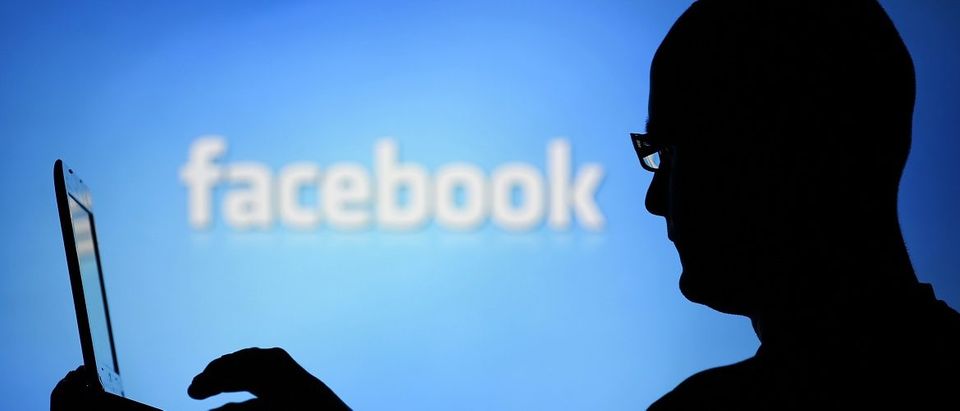This past weekend, The Washington Post published an explosive headline: “FBI backs CIA view that Russia helped Trump win election.” If true, the consequences would have been profound: Moscow succeeded in planting their candidate in the Oval Office.
American democracy would be dead.
But the Post later scrubbed that title and replaced it with something softer: “FBI in agreement with CIA that Russia aimed to help Trump win White House.” See the difference? It’s subtle. Russia aimed to help Trump. That is not the same as accomplishing it.
Lost in the article: President Obama knew of the Russian meddling when he said that the election results represented the will of the American people. He may not have liked the result – neither did I – but we both accept it.
So why did the Post publish this misleading headline? Welcome to the world of fake news and editorial bias.
Media operators – mainstream and otherwise – know that some 60% of Americans never read past the headlines. Accordingly, media owners and editors know that they have the power to push their own perspective on the world. There’s surprisingly good data to show that they do.
Questionable journalism isn’t new, of course. In the early 1900s, two media titans – Joseph Pulitzer and William Randolph Hearst – fought for eyeballs by using misleading headlines, fake experts, and pseudoscience to sell more newspapers – and make more money. Their battle resulted in the phrase “yellow journalism.”
In the 1950s, supermarket tabloids jumped in on the act. The National Enquirer focused on sensational stories of sex and scandal, while later magazines like Star gossiped about Hollywood performers. It’s still big business even today: the publisher of these two magazines makes hundreds of millions of dollars each year.
America, it seems, likes its fake news. Indeed, recent polling shows that some of us knowingly share it.
While it’s harmless to read about Jennifer Aniston’s baby bump (except if you’re Jennifer Aniston), it’s something else when fake news spawns bloodshed. In 1901, Hearst’s Journal asked readers to consider the benefits of killing President McKinley; not long after, an anarchist did just that. Over 100 years later, an armed man stormed a pizzeria in Washington D.C. to investigate fake reports that the Clintons were operating a secret child sex ring inside. Thankfully no one was hurt.
Given the grave consequences of fake news, it’s fair to try to limit it. The most recent attempt: Facebook’s collaboration with “fact checkers” who will stamp a cigarette-like warning label on articles if they deem it bad for our mental health.
Though commendable in spirit, this approach is foolish in practice. Who will fact check the fact checkers? And who’s liable – financially, morally – if they’re wrong? Meanwhile, how long will it be until fake sites embrace the warning label like a badge of honor? Just look at the “deplorable” t-shirts worn by Trump supporters.
Fundamentally, Facebook is chasing something that doesn’t exist: bias-free journalism. For better or worse, humans collect and interpret facts differently. That will never change (absent robot journalists). Adopting Big Brother censors will only make it worse.
So what’s a citizen to do? There are four simple, if imperfect, solutions.
First, start with recognizing your own biases. Easiest check? Whenever you feel surprised, that’s usually the brain signaling a bias is under attack. Take a moment to figure out why.
Meanwhile, when considering news sources, choose three outlets that run the spectrum of bias. Pick one from the left, one from the right, and one in the middle. Read each and smoke out the differences. The truth is in there somewhere.
Third, look for opinion writers who believe that the world is gray, not black and white. We all know the gasbags in today’s media. Choose moderation and balance instead.
Fourth, follow wire services like the Associated Press (AP). They tend to report the facts and just the facts.
Which highlights a possible fifth solution, but for media owners only. When it comes to print and digital news, remove all analysis; offer only fact-based headlines and barebones AP reports. But how to make sense of these facts? At the end of each article, pair opinion writers that offer two different assessments of the facts. Readers can then use their judgment as to which seems most reasonable. The marketplace will decide success, not Facebook’s overlords.
What might this look like in the real world? Let’s look at the flubbed Post article. The headline could have read “FBI, CIA: Russia aimed to help Trump win.” That’s dispassionately true, no matter if you’re a Republican, Democrat, or Libertarian.
The article itself could have consisted of paragraphs that provided an updated FBI view, the CIA’s original assessment, and Moscow’s multiple goals in their hacking and propaganda efforts; it wasn’t just electing Trump. Finally, readers would learn that there’s no data on whether the Russian effort was successful. Again, all these things are true, no matter your party affiliation.
At the end of the article, users would be offered links to analysis: one opinion writer could quote Trump, lawmakers, and former CIA officers who breathlessly called the event the “political equivalent of 9/11.” Another writer might do the same but quote another CIA officer who offers a very different analysis – like why the Russians meddled in the first place.
I offer this fifth solution with full clarity that it is imperfect. After all, who defines the initial “facts”? And wouldn’t there still be fake outlets in foreign countries that seep across the internet?
Indeed, there will always be fake news and misleading headlines. But we have a stark choice: news filtered by Corporate America and their secret fact checkers, or by your fellow citizens, however imperfect.
Call me naïve, but I’d rather gamble on the American people.
Bryan Dean Wright is a former covert CIA officer and member of the Democratic Party. He contributes on issues of politics, national security, and the economy. Follow him on Twitter @BryanDeanWright.


